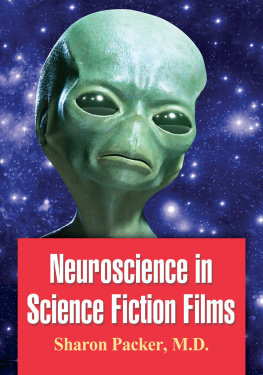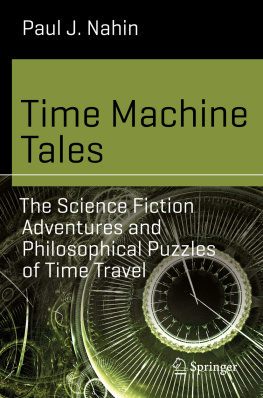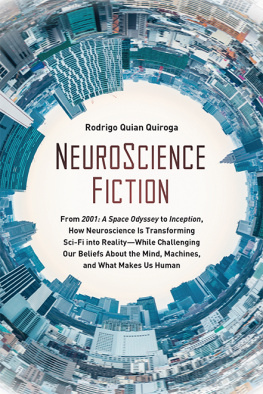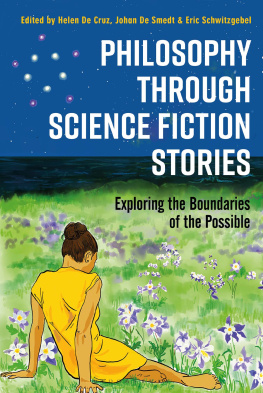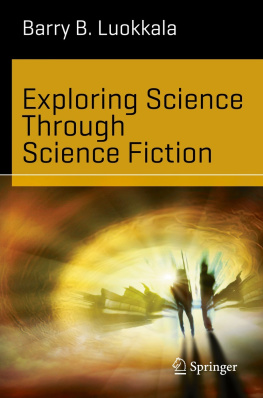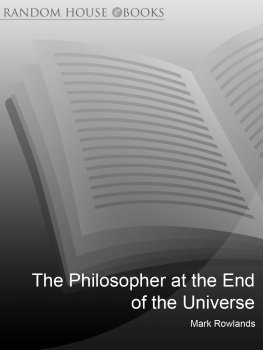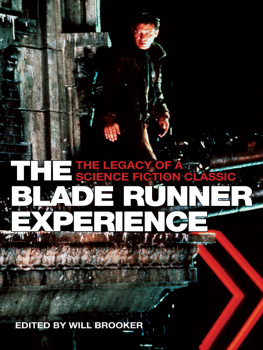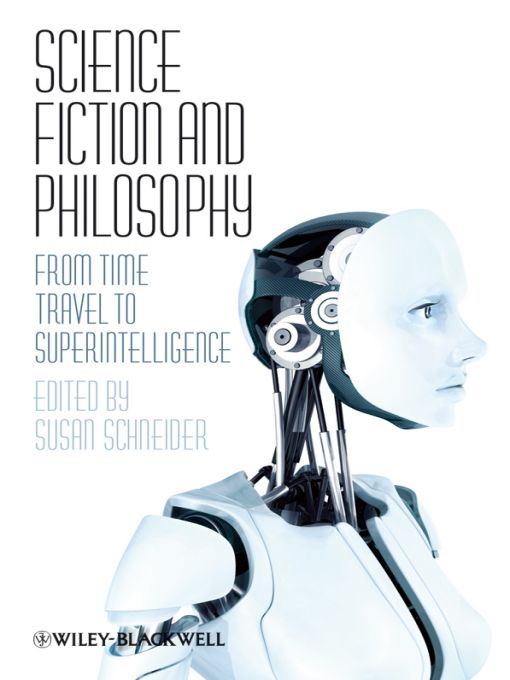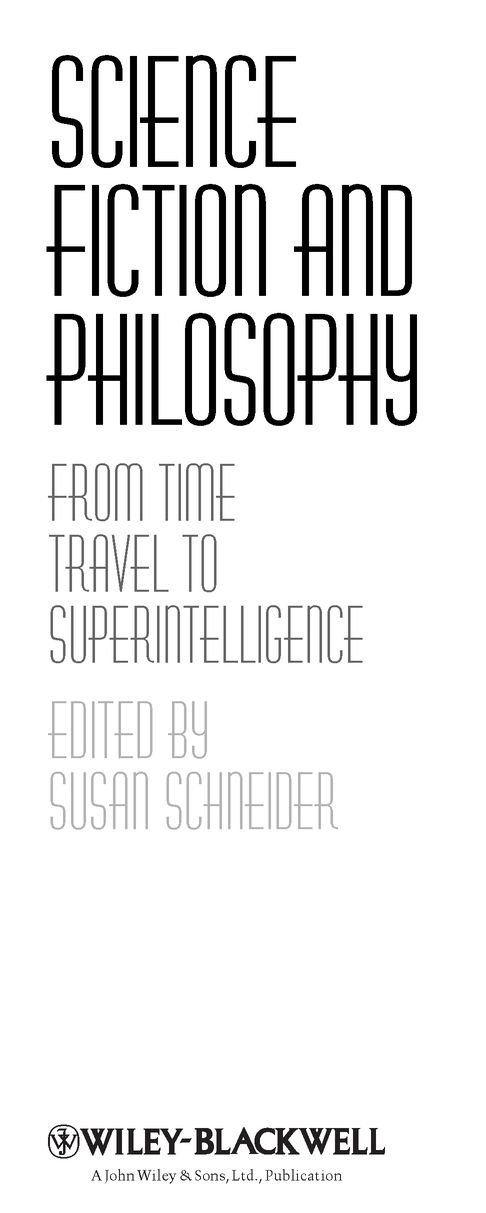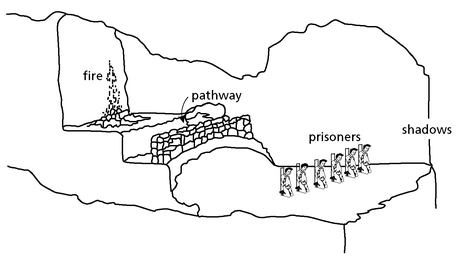Table of Contents
SOURCES AND ACKNOWLEDGMENTS
Part I
Chapter 1, Brain in a Vat (John Pollock, Chapter 1, The Problems of Knowledge, in Contemporary Theories of Knowledge, Rowman & Littlefield Publishers, Inc., 1986, pp. 1-3, reprinted by permission of the publishers); Chapter 2, Are You in a Computer Simulation? (Nick Bostrom, The Simulation Argument: Why the Probability that You Are Living in a Matrix is Quite High, in Times Higher Education Supplement, 16 May 2003, pp. 1-5, reprinted by permission of Times Higher Education and Nick Bostrom); Chapter 3, Excerpt from The Republic (Plato, The Republic, trans. Benjamin Jowett, P.F. Collier & Son, Colonial Press, 1901); Chapter 4, Excerpt from The Meditations on First Philosophy (Ren Descartes, Meditation I, trans. John Veitch, The Classical Library, 1901); Chapter 5, The Matrix as Metaphysics (David J. Chalmers, reprinted by permission of the author).
Part II
Chapter 6, Where Am I? (Daniel C. Dennett, Brainstorms, Bradford Books, 1978, pp. 356-64); Chapter 7, Personal Identity (Eric Olson, in Edward N. Zalta (ed.), The Stanford Encyclopedia of Philosophy, Winter 2008; http://plato.stanford.edu/archives/win2008/entries/identity-personal/); Chapter 8, Divided Minds and the Nature of Persons (Derek Parfit, in Mindwaves, ed. Colin Blakemore and Susan Greenfield, Basil Blackwell, 1987, pp. 351-6, reprinted by permission of Blackwell Publishing); Chapter 9, Who Am I? What Am I? (Ray Kurzweil, The Singularity is Near: When Humans Transcend Biology, Viking, 2005, pp. 382-7); Chapter 10, Free Will and Determinism in the World of Minority Report (Michael Huemer); Chapter 11, The Book of Life: A Thought Experiment (Alvin I. Goldman, Actions, Predictions and Books of Life, American Philosophical Quarterly, 5.3 (1968), pp. 22-3).
Part III
Chapter 12, Robot Dreams (Isaac Asimov, in Robot Dreams, Byron Preiss Visual Publications Inc., 1986, pp. 25-50); Chapter 13, A Brain Speaks (Andy Clark, from Being There: Putting Brain, Body and World Together Again, MIT Press, 1996, pp. 223-7, 1996 Massachusetts Institute of Technology, by permission of MIT Press); Chapter 14, The Mind as the Software of the Brain (Ned Block, from An Invitation to Cognitive Science, ed. D. Osherson, L. Gleitman, S. Kosslyn, E. Smith, and S. Sternberg, MIT Press, 1995); Chapter 15, Cyborgs Unplugged (Andy Clark, from Natural Born Cyborgs, Oxford University Press, 2007, pp. 13-34, by permission of Oxford University Press, Inc.); Chapter 16, Consciousness in Human and Robot Minds (Daniel C. Dennett, from Cognition, Computation and Consciousness, Oxford University Press, pp. 1-11, by permission of the publishers); Chapter 17, Superintelligence and Singularity (Ray Kurzweil, Chapter 1 in The Singularity is Near: When Humans Transcend Biology, Viking, 2005, pp. 7-33).
Part IV
Chapter 18, The Man on the Moon (George J. Annas, from American Bioethics: Crossing Human Rights and Health Law Boundaries, Oxford University Press, 2004, pp. 29-42); Chapter 19, Mindscan: Transcending and Enhancing the Human Brain (Susan Schneider); Chapter 20, The Doomsday Argument (John Leslie); Chapter 21, Asimovs Three Laws of Robotics and Machine Metaethics (Susan Leigh Anderson, from Proceedings of the AAAI Fall Symposium on Machine Ethics, ed. Anderson); Chapter 22, Ethical Issues in Advanced Artificial Intelligence (Nick Bostrom, in Cognitive, Emotive and Ethical Aspects of Decision Making in Humans and in Artificial Intelligence, vol. 2, ed. I. Smith et al., Institute of Advanced Studies in Systems Research and Cybernetics, 2003, pp. 12-17).
Part V
Chapter 23, A Sound of Thunder (Ray Bradbury, from Colliers Weekly, The Crowell-Collier Publishing Company, 1952, pp. 1-9); Chapter 24, Time (Theodore Sider, from Riddles of Existence, Oxford University Press, 2008, pp. 44-61, by permission of Oxford University Press); Chapter 25, The Paradoxes of Time Travel (David Lewis, from American Philosophical Quarterly, 13 (1976), pp. 145- 52); Chapter 26, The Quantum Physics of Time Travel (David Deutsch and Michael Lockwood, from Scientific American, March 1994, pp. 68-74, reprinted with permission. Copyright 1994 by Scientific American, Inc. All rights reserved); Chapter 27, Miracles and Wonders: Science Fiction as Epistemology (Richard Hanley).
Every effort has been made to contact owners of copyright material. In the event of any oversight, please contact the publisher so that errors or omissions can be rectified at the earliest opportunity.
INTRODUCTION
Thought Experiments: Science Fiction as a Window into Philosophical Puzzles
Susan Schneider
Let us open the door to age-old questions about our very nature, the nature of the universe, and whether there are limits to what we, as humans, can understand. But as old as these issues are, let us do something relatively new - let us borrow from the world of science fiction thought experiments to fire the philosophical imagination. Good science fiction rarely disappoints; good philosophy more rarely still.
Thought experiments are imaginations fancies; they are windows into the fundamental nature of things. A philosophical thought experiment is a hypothetical situation in the laboratory of the mind that depicts something that often exceeds the bounds of current technology or even is incompatible with the laws of nature, but that is supposed to reveal something philosophically enlightening or fundamental about the topic in question. Thought experiments can demonstrate a point, entertain, illustrate a puzzle, lay bare a contradiction in thought, and move us to provide further clarification. Indeed, thought experiments have a distinguished intellectual history. Both the creation of relativity and the interpretation of quantum mechanics rely heavily upon thought experiments. Consider, for instance, Einsteins elevator and Schrdingers cat. And philosophers, perhaps even more than physicists, make heavy use of thought experiments. Ren Descartes, for instance, asked us to imagine that the physical world around us was an elaborate illusion. He imagined that the world was merely a dream or worse yet, a hoax orchestrated by an evil demon bent on deceiving us. He then asked: how can we really be certain that we are not deceived in either of these ways? (See Descartes piece in this volume, Chapter 4.) Relatedly, Plato asked us to imagine prisoners who had been shackled in a cave for as long as they can remember. They face a wall. Behind them is a fire. Between the prisoners and the fire is a pathway, where men walk, carrying vessels, statues and other objects (See .)
Platos cave
As the men walk behind the prisoners, they and the objects they carry cast shadows on the cave wall. The prisoners are thus not able to see the actual men and objects; their world is merely a world of shadows. Knowing nothing of the real causes of the shadows, the prisoners would naturally mistake these shadows for the real nature of things. Plato then asked: is this analogous to our own understanding of reality? That is, is the human condition such that our grasp of reality is only partial, catching only the slightest glimpse into the true nature of things, like the prisoners world of shadows?1


